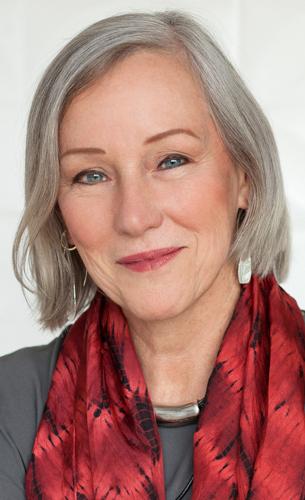Myths and half-truths often cloud the public’s understanding of health and science trends. Some of the University of Arizona’s top professors are offering a lecture series aimed at dispelling a handful of today’s most pervasive misunderstandings.
Starting Wednesday evening, the UA College of Science is hosting its 18th annual lecture series, and this year’s theme is “myth-busting science.”
The 7 p.m. lectures are free and open to the public and will feature four speakers over the next month inside Centennial Hall on the UA’s campus. The lineup includes:
Feb. 1: Lee Ryan, “Precision Aging: Busting the one-size-fits-all myth”
Feb. 8: Eduardo Blanco, “Are computers as smart as you think?”
Feb. 15: Jessica Tierney, “Climate is always changing. So why is climate change a problem?”
March 1: Mike Worobey, “Origins of the Covid-19 Pandemic: Facts and Fallacies”
“Our goal has always been to bring the thrill and understanding of the science we do to our local community and communities beyond Tucson,” said Carmie Garzione, dean of the UA College of Science. “We love engaging with the public and sharing what we’re focused on and we try to bring topics that are timely, relevant and of broad interest.”
Past lecture series have focused on such topics as minerals, machines and water.
Garzione said the college decided on the theme of myth-busting to help attendees make sense of the flood of information available online and develop a deeper understanding of how scientists approach their work.
“Sometimes people take stereotypes too far, and stereotyping doesn’t always serve people in understanding the ways they can help themselves,” she said.
One common example, Garzione added, is stereotypes about aging, which is the topic of the first lecture, set for 7 p.m. on Wednesday. “Everyone ages differently. It’s not just the standard stereotype of becoming more and more limited in your mental abilities and memory.”
Attendees at the lecture on aging, which will be delivered by Lee Ryan, head of the psychology department, can expect to hear some of the latest research on the aging brain.
Ryan also helped launch the Precision Aging Network about a year ago. Out of the program’s research, Ryan and her colleagues hope to develop targeted and individualized treatment plans for people experiencing the cognitive effects of aging.
“I’m going to particularly focus on this idea of one-size-fits all. … There’s this idea that if you live long enough you will get Alzheimer’s disease and that’s not true,” said Ryan, who noted that despite the frequent attention on the horrors of dementia, only about 13% of people will develop some form — Alzheimer’s is by far the most common — of the disease. “I’m going to show a lot of data that shows how aging is a lot more positive for most people than we think.”
Ryan’s talk will also offer some tips that can help maintain cognitive function through aging. At the top of the list is attending a lecture series like the one Ryan and her colleagues are offering this month.
“One of the best things you can do for yourself to maintain brain health is to be a lifelong learner,” Ryan said. “These kinds of activities — being with people and learning new, meaningful and relevant information — that’s a really great reason to come and be a part of this.”
This is a clip from the College of Science lecture series in 2021, which focused on water. Here, Connie Woodhouse, a geography professor at the UA, discusses how the Colorado River is subject to natural climate variability and, increasingly, the impacts of a warming climate. Watch the full video of this lecture and others on the UA College of Science's YouTube channel, http://tucne.ws/1mh9.
The lecture series will take place in person but will be recorded and archived online on the UA College of Science’s YouTube channel. Recordings of past lecture series are also available there, at http://tucne.ws/1mh9.







